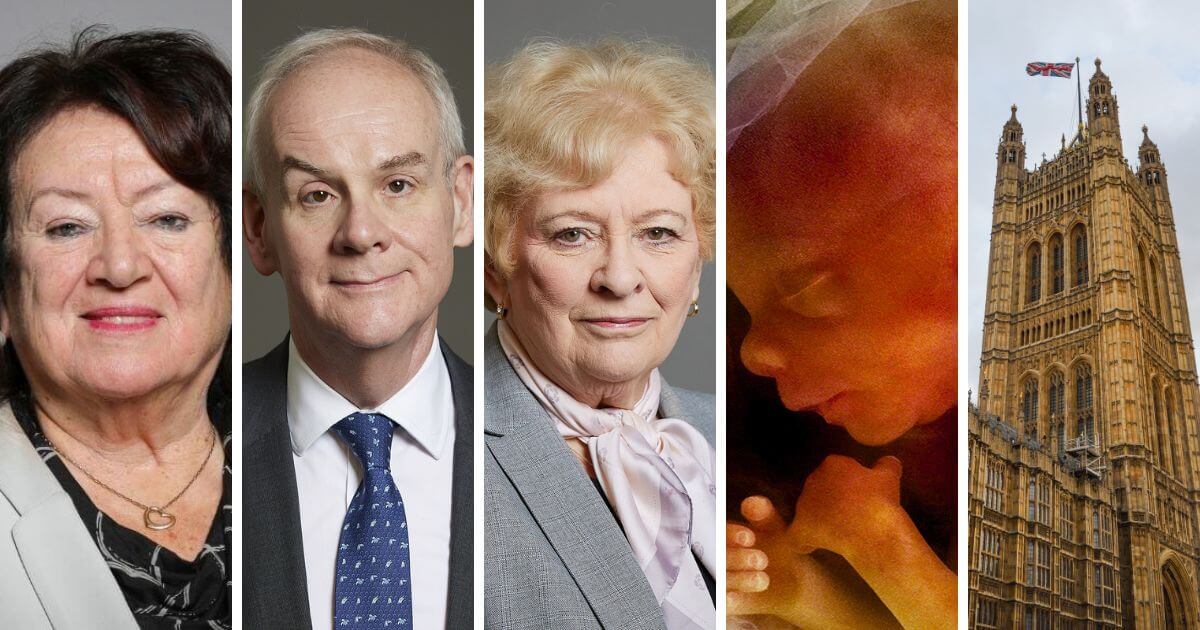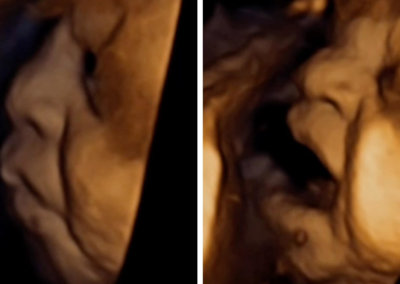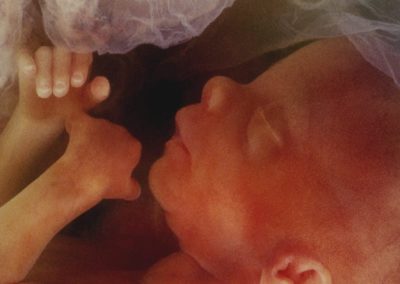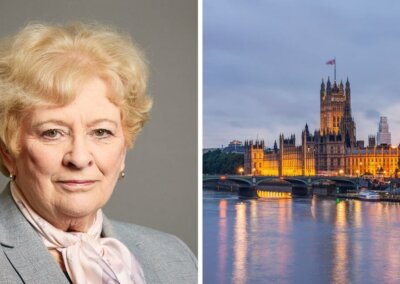Three pro-life Private Members’ Bills will be introduced to the House of Lords after they were drawn in a ballot today.
Baroness O’Loan’s Abortion (Gestational Time Limit Reduction) Bill 2023 was drawn at number 24 and will receive a First Reading on Thursday 7 December.
Baroness Eaton’s At Home Early Medical Abortion (Review) Bill was drawn at number 13 and will receive a First Reading on Wednesday 29 November.
Lord Moylan’s Foetal Sentience Committee Bill was drawn at number nine and will receive a First Reading on Monday 27 November.
There were no pro-abortion or pro-assisted suicide bills drawn in the ballot.
How House of Lords Private Members’ Bills work
At the beginning of each session of Parliament, two days after the State Opening of Parliament, a ballot is held to allocate the order in which the first 25 Private Members’ Bills will be introduced in the House of Lords. Usually, a large number of Peers enter the ballot, providing a short and long title of their bill for the Legislation Office. The order of the ballot determines the order in which the bills receive their First Reading in the House.
Private Members’ Bills in the Lords do not generally get enough time allocated to progress through all stages in the House of Lords, but if they do, they can then be supported by an MP and continue in the Commons.
In the Commons, Lords Private Members’ Bills do not have priority over bills introduced in the Commons, so unless the Government chooses to give them time, they rarely become law.
Peers usually use Private Members’ Bills as an opportunity to raise the profile of an important issue by having it debated in the Lords, and the campaigning and media opportunities that come with that can help them further raise the profile of that issue.
Following the profile-raising of the issue and the momentum for reform that is generated through introducing the bill in the House of Lords, a law change can then be introduced at a later date through another mechanism such as a Private Members’ Bill in the Commons or an amendment to a Government Bill.
Peers will be finalising the contents of their Bills with the Public Bill Office, so only the title of each Bill is currently available. In the meantime, we have provided background on each of the areas that the titles of the bills cover and outlined the strong case for change in these areas.
Abortion (Gestational Time Limit Reduction) Bill
Baroness O’Loan’s Abortion (Gestational Time Limit Reduction) Bill was drawn at number 24.
Abortion is currently available in England, Wales, Scotland and Northern Ireland de facto on demand up to 24 weeks gestation and later in limited circumstances.
Our 24-week limit is out of line with the majority of European Union countries, where the most common time limit for abortion on demand or on broad social grounds is 12 weeks gestation.
The median among EU countries is 12 weeks (this includes Denmark, Finland, Germany and Belgium), 14 weeks in France and 18 weeks in Sweden.
At 12 weeks, the unborn baby is fully formed. All of his or her organs, muscles, limbs and bones are in place, and the sex organs are well-developed.
There have been huge advances in medical science in the over 30 years since 1990 when the abortion time limit was last changed.
In 1990, the time limit for abortion was reduced from 28 weeks to 24 weeks. The reduction in the time limit appears to have been significantly based on the results of a Royal College of Obstetricians and Gynaecologists (RCOG) working party report into neonatal survival rates, and several Parliamentarians referenced changes around viability as their rationale for supporting a reduction.
The survival rate for extremely premature babies has doubled over the past decade, prompting new guidance from the British Association of Perinatal Medicine that establishes 22 weeks gestation to be the point of viability and enables doctors to intervene to save premature babies from this time.
A large majority of the British public support reducing the abortion time limit. Polling undertaken by Savanta ComRes shows that 60% of the general population and 70% of women support a reduction in the time limit to 20 weeks or below.
At Home Early Medical Abortion (Review) Bill
Baroness Eaton’s At Home Early Medical Abortion (Review) Bill was drawn at number 13.
Last year, MPs voted by a narrow margin of 27 votes (215:188) in favour of an amendment to the Health and Care Bill, that made ‘DIY’ at-home abortion permanently available in England.
This result overturned the Government’s decision to end the temporary provision that allowed abortions to take place entirely outside of a clinical setting.
Results from the Department of Health and Social Care’s consultation on ‘DIY’ abortion showed overwhelming support for the Government’s decision to wind down the services, with 70% of respondents saying the policy should end immediately and only 22% saying it should remain permanently.
At-home abortion schemes have been linked to a series of scandals where women have been put at risk.
A study released in November 2021 suggested that more than 10,000 women had to receive hospital treatment following the use of medical abortion pills in England between April 2020 and September 2021.
By removing a routine in-person consultation that allows medical practitioners to certify gestation and recognise potential coercion or abuse, ‘at-home’ abortion has presented serious risks to women and girls in abusive situations. It has allowed severe complications to occur, as well as abortions beyond the legal limit, as abortion providers currently cannot ensure the pills are taken by the intended individual within the appropriate time frame.
Earlier this year, pro-life campaigners renewed calls for an end to ‘DIY’ home abortions and the reinstatement of in-person appointments before all abortions take place after the abortion provider, the British Pregnancy Advisory Service, sent out abortion pills to a woman whose baby, Lily, was at least 32 weeks gestation, which is 22 weeks beyond the legal limit for at-home abortions.
The case would not have happened had the gestation of baby Lily been accurately identified by ultrasound or a physical examination during an in-person appointment. If this appointment had taken place, the gestation of the baby would have been accurately identified and abortion could not have taken place.
Polling by Savanta ComRes shows that 92% of women in Britain agreed that a woman requesting an abortion should always be seen in person by a qualified doctor.
Foetal Sentience Committee Bill
Lord Moylan’s Foetal Sentience Committee Bill was drawn at number nine.
The evidence around foetal development and sentience highlights the humanity of the unborn child and provides another important reason to introduce legislation to protect the unborn child from abortion.
A 2020 report released by the All-Party Parliamentary Pro-Life Group (Pro-life APPG) on foetal sentience and pain summarised the extensive developments in medical science and academic research that point to the same conclusion: it is likely that babies in the womb can feel pain, possibly from as early as 12 weeks gestation, with some evidence suggesting even earlier.
The report also highlighted inconsistencies in UK law – currently, the killing of ‘protected animals’ from “two-thirds” of gestation is subject to tighter legal regulation than unborn humans being aborted from the same stage. Sections 1, 2(7) and 15A, and Schedules 1 and 2 of the Animals (Scientific Procedures) Act 1986 stipulate how animal foetuses must be killed in ‘humane’ ways, whilst no parallel legal provision exists for human foetuses.
The Government has acknowledged that unborn babies undergoing surgery for spina bifida from 20 weeks gestation on the NHS receive pain relief. Tragically, as the Pro-Life APPG report stated, at this same gestation (between 14 and 24 weeks) babies undergoing abortion “via surgical dilatation and evacuation (D&E)” – in other words, dismemberment – are not provided pain relief, nor are babies at 22 weeks who are aborted via “feticide, where potassium chloride is injected into the heart of the fetus”.
Potassium chloride is the drug that causes death in an execution using a lethal injection. Human Rights Watch has highlighted that it is “excruciatingly painful if administered during an execution without proper anaesthesia” in adults.
Opportunity to put pro-life issues firmly on the radar in Parliament and beyond
Catherine Robinson, spokesperson for Right To Life UK, said “It’s fantastic to see that three Peers will be introducing pro-life bills to the House of Lords. While it is rare for Lords Private Members’ Bills to become law, these three bills will ensure that pro-life issues are put firmly on the radar and debated extensively in Parliament, the media and wider society. This will help raise the profile of these issues and build further momentum for changes to our abortion legislation”.
“These bills provide an opportunity to proactively put the pro-life perspective on the agenda along with putting the abortion lobby on the back foot”.
“It’s also great to see that neither pro-abortion nor pro-assisted suicide bills were drawn in the ballot. While this is a positive development, we are still expecting pro-abortion MPs, backed by BPAS, to try and hijack a Government Bill during this parliamentary session and force through a major change to our abortion laws that would allow abortion up to birth”.












